Are These Common Problem Foods The Real Source of Your Fatigue?
Often times, it can be difficult to track down the exact cause of your fatigue. As a result of that difficulty, many people simply grow accustomed to being exhausted all the time, believing that medical science has no answers for their questions. But what if the real source of your fatigue was as simple as the food you eat?

Remember that only saying that you are what you eat? Well, we all know that is not true in the strictest sense, but it does have relevance when we look at how what we eat impact our health. After all, we’ve all read news accounts of research studies indicating how certain foods can affect everything from the way your body manages red blood cells to your mental acuity and even mood. Given the overwhelming evidence in support of a prominent role for food in bodily health, one thing is clear: what you eat may not determine who or what you are, but it certainly impacts how healthy you can be.
That makes understanding food’s impact on your energy levels and overall health absolutely critical if you want to manage your body and overcome your fatigue. The simple fact is that food affects us in a multitude of ways that are both positive and negative. There are, however, some common food types that can directly affect your energy level and make you more tired than you should be. Recognizing them and understanding how they affect you as an individual can be an important part of any effort to resist fatigue and enjoy normal energy levels once again.
Problem Foods
The most common problem foods can be broken down into three simple categories: those that cause sensitivities that disrupt your bodily systems, those that cause allergic reactions, and those that simply lead to imbalances in blood sugar and add stress to the adrenals and other vital systems.
Sensitivities
Dairy products are among the most common foods which can cause digestive difficulties and fatigue. Often times, adults have difficulty processing the dairy protein, regardless of whether it is in liquid or solid form. As a result, patients can struggle to digest everything from milk to yogurt and cheeses. Note that sensitivities are less harmful than outright lactose intolerance, which can be health-threatening. Still, even mild sensitivities to dairy products can induce fatigue.
Many types of fish contain high levels of mercury and other toxins, which can play havoc with the body’s systems and create fatigue. This is especially true of fish such as tuna, and those are in fish farm settings. Many of the farmed fish are subjected to harmful chemicals and antibiotics that their wilder relatives avoid.
Wheat and other grains containing gluten are similarly troublesome. Many people have sensitivities to the protein found in these grains, and can experience digestive difficulties as a result of their intolerance. These difficulties lead to fatigue as well.
Allergens
There are many foods that some people simply cannot eat without experiencing allergic reactions. These include high-profile foods like peanuts, soy, and even egg whites. Any allergy can result in serious health complications and complete disruption of the body’s systems, causing body weakness, fatigue, and even more serious complications.
Energy Disruptors
Sugary foods and so-called simple carbohydrates are equally problematic for fatigue sufferers. In fact, any food that is quickly metabolized can cause blood sugar problems and lead to cycles of high and low energy that results in severe fatigue at some point or another. Most heavily-processed foods fall into this category as well.
How They Impact You
As noted earlier, these foods can all impact bodily systems in different ways. In each case, the natural balance of energy production in the body is disrupted in one way or another, leading to either a systemic crash – as in the case with certain intolerances and most allergies – or a cycle of high and low energy periods that overstress the pancreas, adrenal glands, pituitary, and hypothalamus. The end result in each instance is the same: the patient is left in a weakened and exhausted state, and often wonders how things went so wrong so quickly.
Solutions for Energy-Increasing Diets
Resolving these food-related issues involves several commitments:
- Work to identify the source of the problem. This can often be best accomplished by removing food items from your diet, one at a time, for several weeks. If you notice a positive change in your energy levels and health, then you can surmise that the food you removed was a problem. Repeat this process for every potential problem food until you are reasonably sure that you have isolated the offending menu choices.
- Focus on a balanced diet. That means skipping those trendy fad diets that tell you to remove all fats or carbohydrates from your regimen. Your body needs all three macronutrients in the right amount to manage its needs. Carbohydrates are necessary for most energy needs, some fats are needed for reserve energy stores, and protein is essential for muscles, immune function, and fluidic balance. Skip any of them and you risk upsetting your body’s ability to keep its energy sustained.
- Eat regularly. Skipping meals is the worst thing you can do to your body. It upsets natural rhythms, disrupts the blood sugar levels, and causes confusion in your basic bodily systems.
- Be sure to get enough vitamins and minerals to meet your nutritional needs. That means plenty of vegetables and fruits!
By identifying and removing problem foods from your diet, you can dramatically improve your energy levels and go a long way toward eliminating your problems with fatigue. It will take time, of course, but a sustained effort to eat healthier and avoid foods that damage your energy levels will leave you feeling more vibrant and healthy in the end.
You might also be interested in:
- Foods That Cause Fatigue. http://www.livestrong.com/article/361455-foods-that-cause-fatigue/
- Are You Tired All the Time? Food Might Be to Blame. http://psychcentral.com/blog/archives/2012/10/16/are-you-tired-all-the-time-food-might-be-to-blame/
- Foods That Cause Fatigue. http://woman.thenest.com/foods-cause-fatigue-10045.html
- Why Am I So Tired? 10 Possible Causes of Fatigue. http://www.webmd.com/women/guide/why-so-tired-10-causes-fatigue
- Fight fatigue by finding the cause. http://www.health.harvard.edu/blog/fight-fatigue-by-finding-the-cause-201107062952


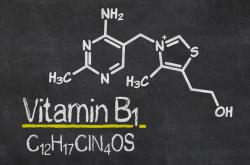

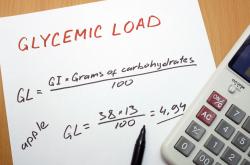

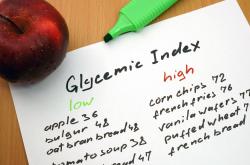
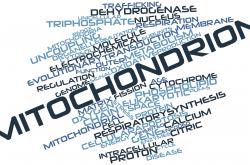
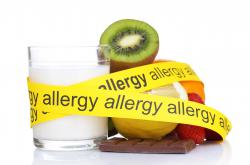









Leave a comment